- Almost any user connected to the Internet has at least one social media account. Learn about the risks and how to protect your online presence.
- We recommend having strong passwords, using a good antivirus, and limiting access to user accounts. More details can be found in the article.
- The articles in the Software Hub will help you stay ahead in this game of protecting your personal information as much as possible.
- If you are interested in more suggestions, check out the VPN Hub from our website.
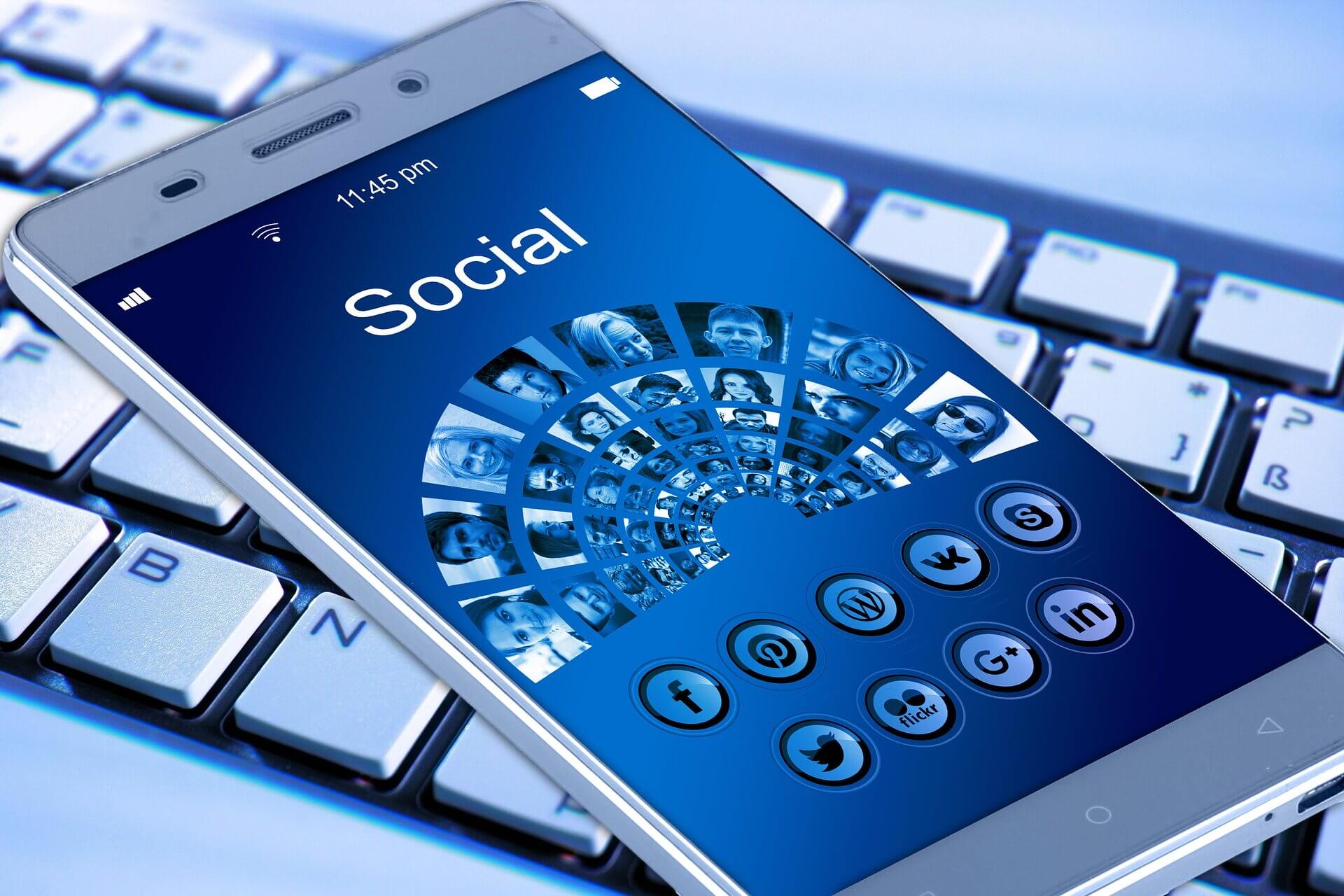
How to protect your privacy on social media [Best tools]
Social media started out as a new way for people to connect and share their life experiences.
In time, it has evolved into big platforms that offer a way to consume news (Twitter), create fan communities (Facebook), search for a job (LinkedIn), create and promote your own brand (Instagram), and so much more.
This means that keeping your accounts secure is more important than ever.
Whether you are a person or a business, there are tools you can use to lower the risks of damaging your own image or losing access to your social media accounts.
From free tools to premium solutions that cost a pretty penny, here’s how to choose the right one for your needs.
1. Use Dashlane
There are several tools out there that can help keep your online accounts safe, and LastPass, Enpass, Dashlane, RoboForm, 1Password are some of them. But the one we recommend you use, in this case, Dashlane.
What makes Dashlane a great choice is the Password Health feature. With this feature, you will see the score for how strong your password is which will help you decide if you want to use it or not.
Moreover, if you want to add an extra layer of security on your Dashlane account, its recommended that you enable the two-factor authentication option.
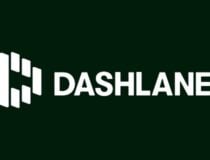
Dashlane
Import all your passwords with just one click. Enhance your online security with the two-factor acuthentication feature!
2. Covering the basics: social login security
The most important aspect of the security of an online account is the login password. Many people choose a very weak password, so it’s best to begin there. A good rule of thumb is to make it as long as possible – aim for at least 12 characters.
Most social networks will ask you to use at least one upper case letter, one number, and one special character, but in reality, it’s just better to aim for a lengthy password that you can easily remember.

XKCD Comic by Randall Munroe
You can find tools that can help you generate secure passwords, but you’ll have to keep those safe.
Password Managers are growing in popularity, and they provide a lot of convenience and security in both free and paid versions.
Notable examples are LastPass, Enpass, Dashlane, RoboForm, and 1Password, but there’s no shortage of options out there.
A password manager will also do the remembering for you. You will only have to use a master password, which is the key to a vault where all the login details are stored encrypted.
Paid versions analyze the strength of your passwords, and notify you to change them if a service has been hacked.
Lastly, make sure to use multi-factor authentication whenever possible, as it’s free and easy to set up using a mobile phone and QR codes.
Popular tools like Google Authenticator, LastPass Authenticator, and Microsoft Authenticator will provide you with a one-time security code every time you log in on a new device, ensuring you’re the real owner of that account.
Don’t worry about memorizing complex passwords. Use one of these password managers to help you out
3. Using an antivirus to avoid scams and phishing

If you’re not already using an antivirus on your Windows PC, there are at least five good reasons why you should.
In short, online threats have only grown with the rise of social media. In turn, the antivirus has evolved to match the increased complexities of online security.
For example, Bullguard has a vulnerability scanner built-in. It will continuously scan your computer. It will notify you in case you are connected to an unsafe Wi-Fi network that might monitor your online activity.
It will also let you know when there are missing security updates for your computer and checks any other software installed or updated for authenticity.
This way, you can rest assured that a rogue software will not take control of your computer and use the social media accounts that you are connected to in order to spread malware to your friends.
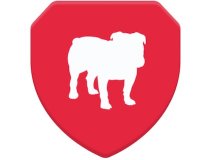
Bullguard
Triple-layer protection from Bullguard. Download this strong antivirus to prevent malware from messing with your social media accounts.
4. Taking it to the next level with cloud protection
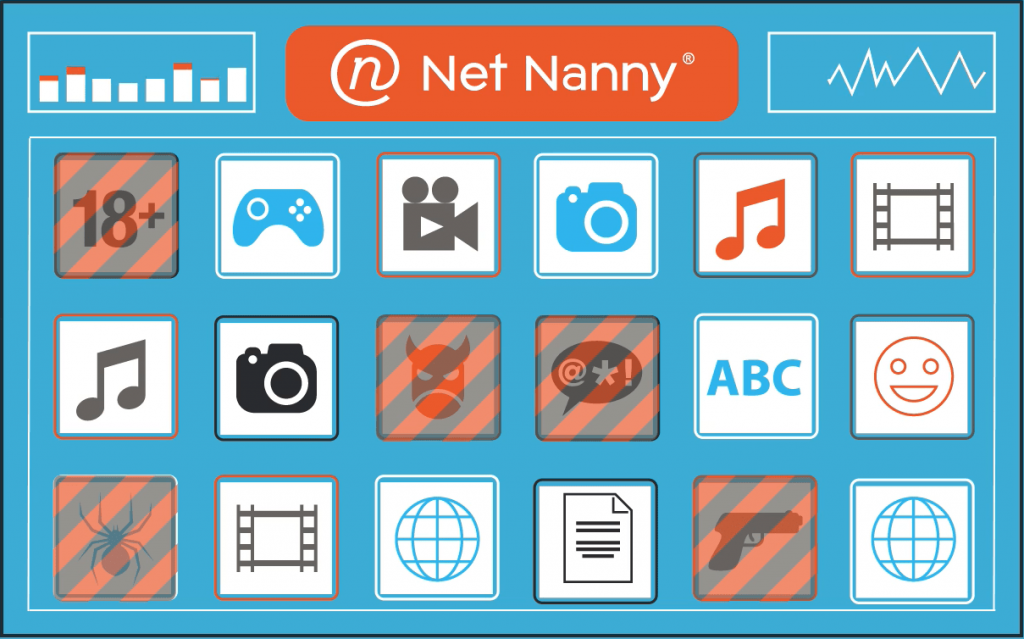
Perhaps you are a parent looking to keep your children safe online. You may be interested in filtering the content they find on social media and protecting them from cyber-bullying and stalking.
There are many options available, and choosing between them can get a little confusing. But let’s talk about what might be the best – even if it’s not exactly the cheapest.
Net Nanny is a great internet filtering tool, which greatly reduces the profanity and blocks adult sites. It also has a social component, designed specifically to monitor children’s activity on popular sites.
This includes Facebook, Twitter, and Tumblr, among others. From instant messaging to image and video posting, Net Nanny Social records everything – even what friends are doing.
Parents have access to a dashboard where they can see an overview of their kids’ activity. This includes the current threat level for stalking and bullying.
You’ll get notified by SMS only when action is necessary, and there’s no need for any software installation. This is a cloud-based service, which means you can set up and do everything from the comfort of your browser.
5. Cloud protection is a must for business owners
If you own a business, managing your always-on social media presence is very important.
Protecting your brand image isn’t just about what happens on your official pages, but also about making sure you track what your employees are doing on their pages.
A simple bad tweet can do irreparable damage, but there are ways to reduce these risks to a minimum.
One good example is Hootsuite, which is great even for professionals who work alone.
This cloud service allows you to do monitoring, analytics, engagement, and security in one package. Security is actually provided via a platform called Zerofox, which integrates seamlessly with your Hootsuite stream.
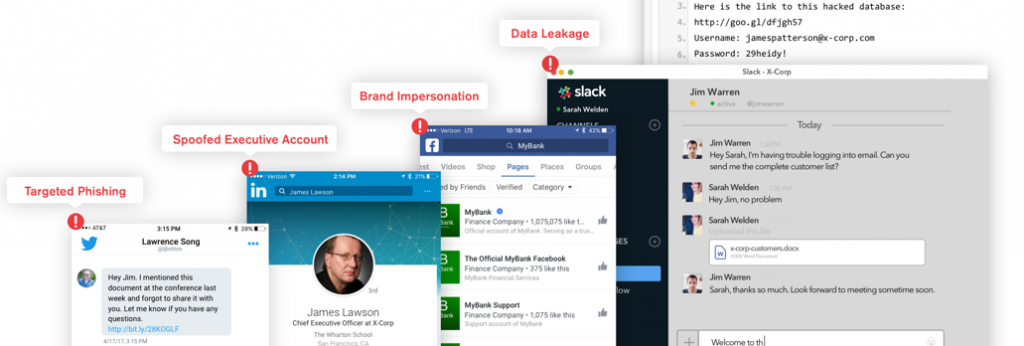
It works great with content curation software. Using these tools will help you set an approval system for social posts. This will give you control of the level of access for each user, and flag sensitive content.
On top of that, you get automated protection against hijacking. Nothing is worse than brand impersonation or having an executive lose control of their social media account.
A good rule of thumb is that security is only as good as the weakest link. Attackers have devised ways to piece together the information they need by targeted phishing, which can translate into data leaks.
In today’s fast-moving world, using a service like Hootsuite is just as important as having a contingency plan.
See the most common myths about online security and a guide on how to avoid them
FAQ: Learn more about social media protection
- Are videos on social media protected by privacy regulations?
Most social media platforms stipulate in their privacy policy that you give them the right to use any content that you upload. They also impose limits on how you can use the content already there.
- How can you best protect yourself when using social media?
Some ways to protect yourself are not getting into contact with people you don’t know and limiting the private information that you offer voluntarily to the platform and users. Use software to protect yourself.
- What are risks of social media?
Leaking private data, more open to phishing attacks and social scams, and susceptible to hacking and damaging your brand or name are the most common risks.
Editor’s Note: This post was originally published in July 2017 and has been since revamped and updated in August 2020 for freshness, accuracy, and comprehensiveness.
Thank you for viewing the article, if you find it interesting, you can support us by buying at the link:: https://officerambo.com/shop/
No comments:
Post a Comment